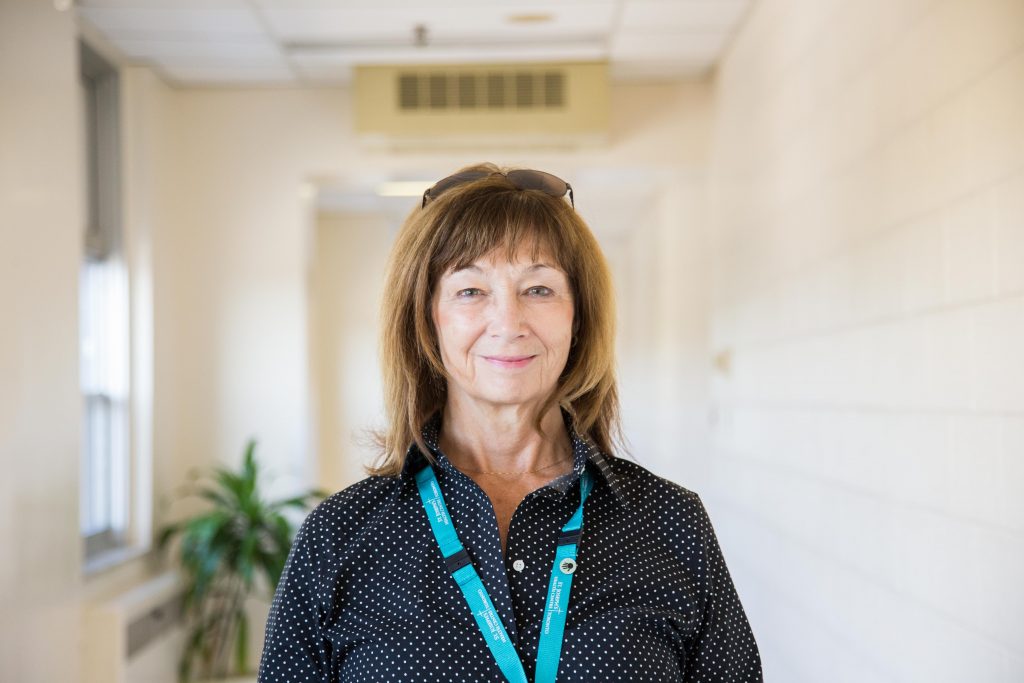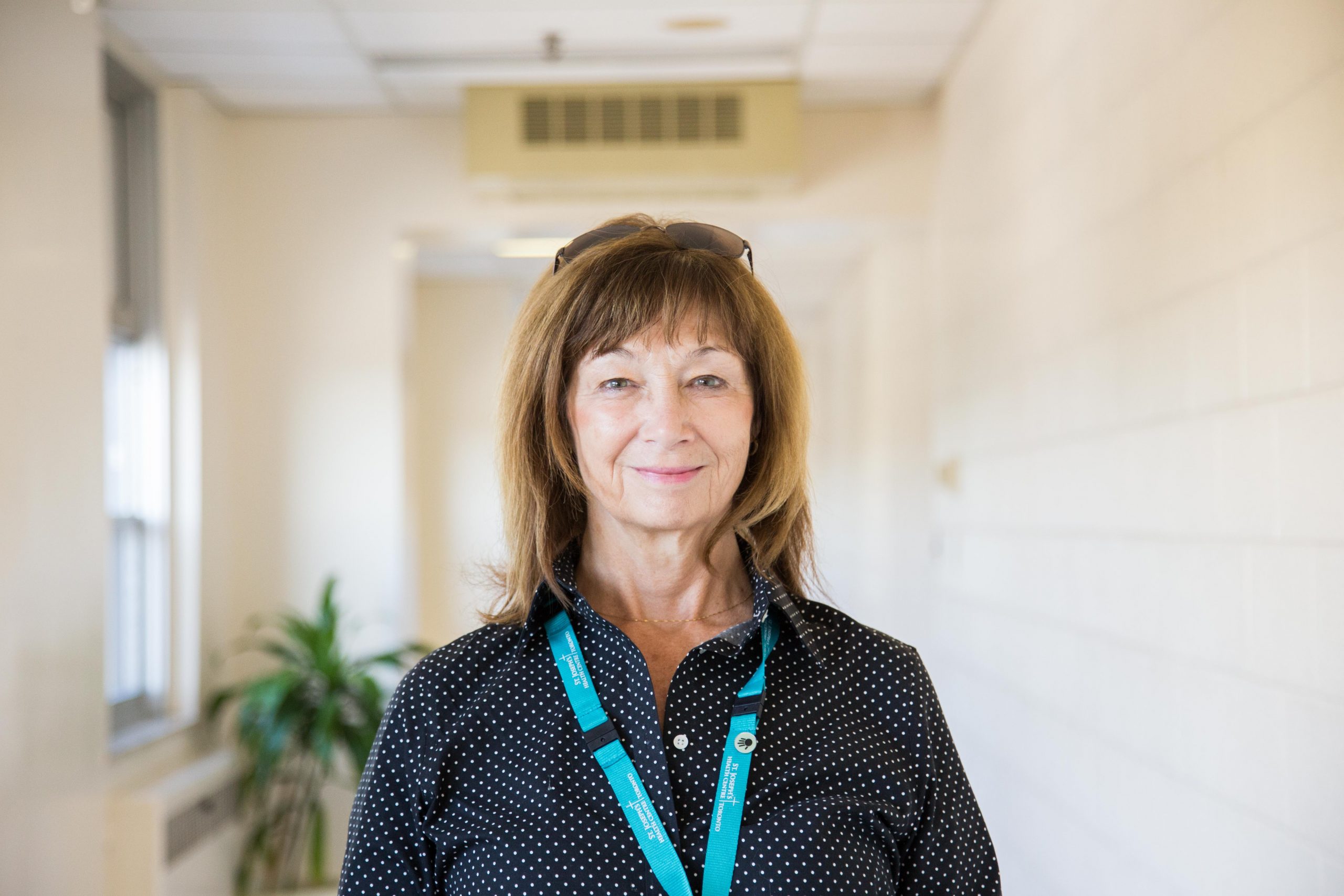Empowering patient advisors to make a provincial impact

 Diane McKenzie is a familiar face at St. Joseph’s Health Centre. For almost five years she’s supported projects at the hospital, including helping increase our hand hygiene rates with our infection prevention team and most recently helping hire our new chief financial officer. She’s sought-after as an advisor on initiatives because of the perspective she brings: that of a patient.
Diane McKenzie is a familiar face at St. Joseph’s Health Centre. For almost five years she’s supported projects at the hospital, including helping increase our hand hygiene rates with our infection prevention team and most recently helping hire our new chief financial officer. She’s sought-after as an advisor on initiatives because of the perspective she brings: that of a patient.
McKenzie is one of the 163 advisors at Providence Healthcare, St. Joseph’s and St. Michael’s Hospital who is working directly with our teams, sharing her firsthand experience with care and real-life suggestions for improvement to help shape care for others. She’s also leading at the provincial level – as a patient leader on Health Quality Ontario’s operations committee responsible for organizing Health Quality Transformation, the organization’s annual quality improvement conference.
“I know how difficult it is for us in health care to work with patients and see their perspective,” McKenzie says. “So my job at this table is to bring everything back to patient care – how is this going to impact our patients and service and how can we provide ideas that participants can take home to implement tomorrow.”
The event brings together more than 3,000 health-care providers with 500 members of the public, patients, families and caregivers to share ideas and learn from one another about how to improve care across the province. McKenzie’s biggest priority for this year’s event was to bring more patient advisors on board, something she helped accomplish: a total of 60 – the most in the event’s history – will be there, participating as co-sponsors on education sessions, moderators and session designers. One of them – Don Ross – is a patient and family advisor at Providence.
Ross has been involved with Providence since he was in rehab after a sudden illness that saw him lose more than 100lbs, become bedridden and dependent on feeding tubes. After a miraculous recovery, he wanted to support the places that cared for him, so he became an advisor at both Sunnybrook and Providence. At Health Quality Transformation, he’ll be drawing on his own background to co-lead a workshop about improving patient and caregiver experience through ‘emotional mapping.’ The workshop will encourage health-care providers to identify moments when they can connect with patients to understand their emotions.
“After months of being sick and thinking you’re going to die, it is very tough emotionally,” Ross says. “If staff show compassion and interest in taking care of you as a person and understanding you have feelings and another life – that you’re a father, grandfather, husband – all of that can go to helping bolster the emotional experience which helps support the patient.”
This will be second time Ross is helping with this conference, though the first at a provincial level – he co-led a similar session at Sunnybrook two years ago.
“I have found my work with the two hospitals the most fulfilling and impactful on others of any that I’ve done in my life – I get back as much as I give,” he said. “I always look forward to opportunities to help when I can – it’s something small I can do to give back.”
Having patient advisors leading at the provincial level helps inspire a similar direction at the hospital level as well. Research has shown that patient engagement helps lead to better outcomes, including new delivery systems and more impactful policies. As hospitals and other health-care organizations increasingly partner with patient and family advisors, our network has set a goal to get more advisors at the table.
“We’ve seen firsthand how patient and family advisors contribute meaningfully to our teams and our work,” says Cathy O’Neill, senior director of patient experience and community engagement. “And because of that, one of our quality improvement goals this year was to increase the number of initiatives they’re partnering with us on, because it helps make sure we’re always considering our patients first. Our patient advisors help make us stronger and contribute to better care so it just makes sense that their voices should be included in the conversation.”
